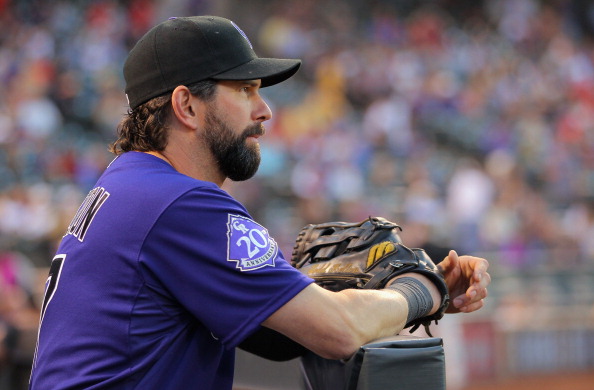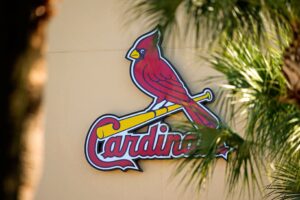On Tuesday, MLB announced the results of the voting for the 2023 National Baseball Hall of Fame class and one player was notably snubbed from induction as the only member inducted was Scott Rolen. 11 votes was the difference between Todd Helton being inducted into Cooperstown, leaving him on the ballot for at least one more year.
However, he did jump more than 20% in the voting from last year’s ballot, and every time a previous candidate was within the same amount of votes, they made it in eventually, according to MLB and DNVR Rockies. So, he will be a Hall of Famer at some point, but she should have been one this year. The two biggest reasons are his statistics and the fact that it remains a question as to why he is still not in.
Todd Helton received 72.2% of votes and missed by 11 votes.
Every player who has ever been that close to 75% has eventually made the Baseball Hall of Fame.
— DNVR Rockies (@DNVR_Rockies) January 24, 2023
Todd Helton Hall of Fame Case
Career Stats
Helton has been trending in the right direction over the last four years. In his 17-year career, he was a dominant force in the Colorado Rockies lineup. Despite playing in the steroid era and not being a user, his stats remain impressive compared to his contemporaries. For his career, he had 2,519 hits, 369 home runs, 592 doubles, 1,406 RBI and 1,335 walks compared to just 1,175 strikeouts. His counting statistics surpass the relative thresholds that several Hall of Fame players have passed. Over 2,500 hits, 350 HR, 500 doubles and 1,250 RBI for most players easily put them among the best players to ever play the game.
Helton’s career slash line was .316/.414/.539, with a career OPS+ of 133. Being 33% better than your competition for an entire career is significant, and his counting statistics are nothing to scoff at, either. He put up a 61.8 career WAR with a seven-year peak of 46.6 (nearly 5.0 WAR higher than the average Hall of Famer.) According to Jay Jaffe’s JAWS system, Helton’s 54.2 is 15th among first basemen. That number hovers over 53.4, the average Hall of Famer.
Helton’s Peak
If his career stats do not put him in the Hall of Fame, then consider his career peak. His five-year stretch from 2000 through 2004 was utter dominance. In 2000, he had a spectacular season of any player in the NL, leading that league with a.372 batting average. He got MVP votes that season, but that honor went to second baseman Jeff Kent. Despite that, he won three Gold Glove Awards in 2001, 2002 and 2004. He was also an All-Star five times and a four-time Silver Slugger.
In this span, Helton slashed .349/.450/.643 and held an OPS of 1.093 and OPS+ of 160. His WAR of 37.5 is higher than some All-Star-level players have throughout their careers.
The “Coors Effect”
A common point of contention regarding Helton’s candidacy is that he played at Coors Field. Hall of Fame voters consider the higher elevation of Denver and high homer totals enough to cancel out. However, his road numbers directly content that point and prove that he was a Hall of Fame hitter, regardless of location. The first baseman hit .287/.386/.469 and 142 home runs in 1,106 games away from Colorado. Furthermore, his .855 OPS on the road is higher than Hall of Famers Tony Gwynn(.835), George Brett (.826) and Derek Jeter (.817)
Another Year of Waiting
Leaving Helton out of the Hall of Fame is a blow to the Rockies franchise. He’s the all-time leader in many franchise categories and paid his dues in his career. As he seeks to get over the 75% hump, it won’t be long before Helton joins another Rockie in Cooperstown, Larry Walker.
Main photo:
Embed from Getty Images
Players mentioned:
Scott Rolen, Todd Helton, Jeff Kent, Derek Jeter, Tony Gwynn, George Brett, Larry Walker






